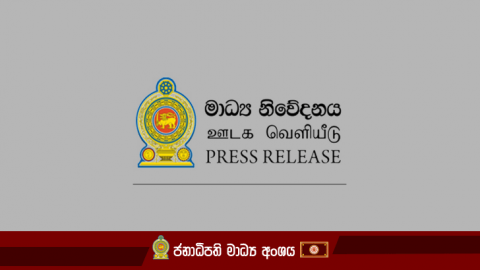
- President instructs to give only Pfizer vaccines to children…
- Instructions to heads of institutions to continue essential public services…
- Quarantine curfew to be lifted on October 01…
It has been decided to extend the quarantine curfew imposed in the country until 4.00 am on October 01.
The decision was taken at the online meeting of the Special Committee on COVID-19 Control chaired by President Gotabaya Rajapaksa this morning (17).
It was revealed at the meeting that the government has made plans to lift the quarantine curfew on October 1, after taking into account the current situation.
The President inquired about the vaccination programme for the children and Director General of Health Services Dr. Asela Gunawardena pointed out that the Committee of Health Experts has recommended that vaccine priority be given to children between the ages of 12-19 years who are suffering from chronic diseases. The Director General of Health Services stated that they have planned to conduct the vaccination only at the relevant clinics with the permission of the parents, subject to the supervision of the clinical specialist.
The President inquired about the vaccination of healthy children in the age group of 12-15 years from the Medical Specialists Committee. The Committee noted that the rest of the world has not yet moved towards this, and that the vaccines are currently recommended for everyone between the ages of 15 and 19.
Accordingly, the President instructed to complete the vaccination of all children between the ages of 15 and 19 expeditiously and to administer the vaccine only in hospitals. The President explained the importance of properly educating the parents in this regard.
The President also instructed that all children be given only the Pfizer vaccine as recommended by the Specialists Committee.
Specialist Dr. Prasanna Gunasena and Prof. Neelika Malavige pointed out that it was observed that the youths expect to obtain only a selected vaccine, and no specific vaccine has yet been introduced, and all vaccines are of high quality, and therefore everyone should get the vaccines without waiting for a specific one.
The importance of referring patients with complications developed post-covid treatment for Ayurvedic treatment and the establishment of Post-covid Treatment Centers in rural Ayurvedic Hospitals was also discussed.
Emphasizing the need to maintain the functioning of essential public services such as the Department of Motor Traffic and the Land Registry, the President said that the Heads of the respective institutions should take necessary decisions in this regard.
Despite the prevalent challenging situation, the Minister of Finance Basil Rajapaksa said that the economy was able to maintain a high level of growth in the first and second quarters of this year and the Minister expressed gratitude to all parties, including Health and Defence sectors, for their commitment in this regard.
The President instructed to maintain the essential services as before without disrupting the daily life and economic activities of the people and further instructed to keep all the economic centers open.
The discussion also focused on the opening of rural schools with less than 200 students. In this context, the President emphasized the need for the Provincial Directors of Health Services to work in close coordination with the Ministry of Education. The importance of conducting awareness programmes for parents and children on health recommendations was also highlighted during the meeting.
President Rajapaksa explained to the Public Health Inspector’s Association (PHIA) President Upul Rohana, that it is the main responsibility of the Public Health Inspectors to encourage the public to be vaccinated.
The President also said that the Public Health Inspectors furthermore vested with the responsibility of giving necessary guidance to Small and Medium Scale Enterprises and the Self-employed individuals to pursue their livelihoods without hindrance.
The President also instructed the IGP to strictly enforce the law against those who do not comply with the health recommendations and violate the quarantine curfew.
Ministers Basil Rajapaksa, Keheliya Rambukwella, Bandula Gunawardana, Dullas Alahapperuma, Johnston Fernando, Mahindananda Aluthgamage, Rohitha Abeygunawardena, Ramesh Pathirana, Namal Rajapaksa, State Ministers Sudarshini Fernandopulle, Sisira Jayakody, Channa Jayasumana, MP Madhura Withanage, Health Secretary Major General (Retd.) Specialist Dr. Sanjeewa Munasinghe, Director General of Health Services. Dr. Asela Gunawardena, Chief of Defence Staff and Commander of the Army General Shavendra Silva, Air Force Commander Air Marshal Sudarshana Pathirana, Inspector General of Police C. D. Wickramaratne, members of the Special Committee on COVID-19 Control, Provincial and Regional Directors of Health Services and the President of the Public Health Inspector’s Association were also present at the meeting.
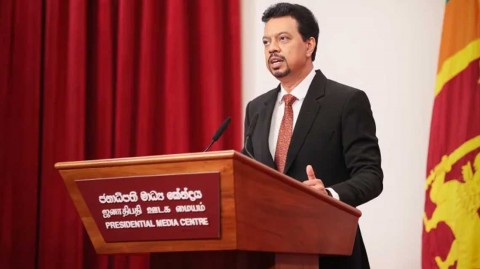
– Foreign Secretary Admiral (Prof.) Jayanath Colombage
Secretary to the Foreign Ministry, Admiral (Prof.) Jayanath Colombage said that there is no need for an external mechanism to solve the internal issues of the country.
The Foreign Secretary also pointed out that the UN Human Rights Council has not been given the power to set up such a mechanism, adding that solutions are available for all the problems of the country within Sri Lanka’s domestic legal system.
The Foreign Secretary made these remarks at a virtual media briefing held at the Presidential Media Centre (PMC) on the topic “Geneva Allegations, the United Nations General Assembly and Sri Lanka’s Foreign Policy”, this morning (16).
The Foreign Secretary said that UN High Commissioner for Human Rights Michelle Bachelet commending the measures taken by the Sri Lankan Government on a number of issues, including giving compensation on behalf of missing persons, the release of LTTE prisoners and the steps taken to amend the Prevention of Terrorism Act in her oral update to the UNHRC session, is a positive sign.
Fifteen countries including China, Russia, Japan, North Korea, South Korea, Pakistan, Iraq and Venezuela have joined hands with Sri Lanka in condemning the interference in its internal affairs under the guise of human rights. The Foreign Secretary also said that they have commended the Government’s accountability to the protection of human rights, the maintenance of reconciliation and the eradication of terrorism.
Compared to other countries in the region, Sri Lanka is a peaceful country. The Foreign Secretary said that Sri Lanka has been at the forefront of defeating terrorism, curtailing extremist terrorist activities as well as building peace and reconciliation among the people of the country. He said that this was actively demonstrated to the international community over the past two years.
Pointing out that Sri Lanka’s foreign policy is non-aligned, the Foreign Secretary said that Sri Lanka’s objective is to move forward in line with that policy without getting caught up in power struggles. In this regard, he said the government is paying close attention to the country’s geographical location.
Responding to questions from the journalists on Sri Lanka’s readiness to face the UN Human Rights Council, Foreign Secretary Colombage said that the government’s policy was very clear and that the countries have been informed of this in various reports over the past few months, and Sri Lanka has received the support of these countries as a result. The Foreign Secretary pointed out that the Foreign Ministry, the Ministry of Justice and the Ministry of Defence coordinated well in this regard.
Principal Advisor to the President Lalith Weeratunga said that the content of the speeches of President Gotabaya Rajapaksa as well as all Heads of State attending the UN General Assembly this year would be “The Mechanisms and Future Plans for Overcoming the Covid-19 Challenge”.
He added that this Session would be a great opportunity to overcome the challenges of the post-Covid era by reaching agreements for the economic and social development of the countries.
He also expressed optimism that President Gotabaya Rajapaksa would use the General Assembly to clarify various misconceptions among the international community regarding Sri Lanka.

- President accepted the resignation…
Lohan Ratwatte, State Minister of Prison Management and Prisoners’ Rehabilitation has tendered his resignation, acknowledging his responsibility for the incidents that took place at the Welikada and Anuradhapura Prison premises.
Mr. Ratwatte informed President Gotabaya Rajapaksa regarding his decision today (15) and the President accepted his resignation.
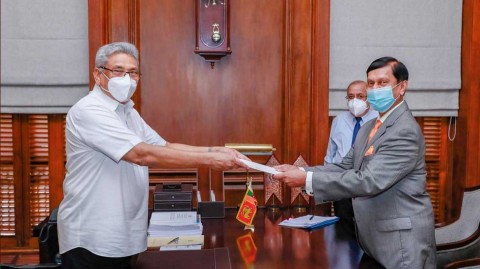
Mr. Ajith Nivard Cabraal, who was appointed as the 16th Governor of the Central Bank of Sri Lanka, received his letter of appointment from President Gotabaya Rajapaksa at the Presidential Secretariat this morning (15).
Mr. Cabraal, who is an experienced Chartered Accountant, has also served as a Ministry Secretary as well as the Governor of the Central Bank for nearly 09 years.
Secretary to the President P.B. Jayasundera was also present at the occasion.
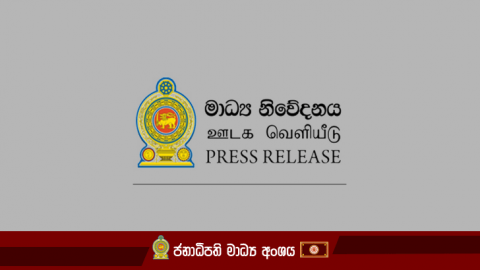
- Steps taken to keep economic centers open …
- Special attention to commence schools …
- Actions to be followed after opening the country based on health recommendations…
The Government has decided to extend the existing Quarantine Curfew until 4 a.m. on September 21.
The decision to extend the Quarantine Curfew was taken during the virtual meeting of the Special Committee on COVID-19 Control chaired by President Gotabaya Rajapaksa, today (10).
The discussion focused on the progress of the vaccination drive and the future course of actions. Dr. Prasanna Gunasena, a member of the COVID Committee, said that the required 120,000 doses of the Sputnik vaccine to administer as the second dose will be received within the next week.
Health officials point out that a high percentage of covid-19 related deaths are reported among the people over 60 years of age, and most of them had not been vaccinated.
Therefore, the President emphasized the need to continue the implementation of the mobile vaccination programme in order to provide vaccines to those over 60 years of age who are unable to come to a vaccination centre and for those who are suffering from various diseases. The President said that those who are reluctant to get the vaccine should be encouraged to get the vaccine.
Vegetable farmers have been severely affected due to the inability to release their produce to the market on a daily basis. Due to this reason, it was decided to keep all the economic centers in the country open.
The impact on nearly 700,000 children due to not receiving their primary education as a result of the school closures in the years 2020 and 2021, and the impact on a similar number of children who lost their early childhood education was discussed in detail at the meeting.
Over 3,000 schools with less than 100 students each are situated in rural areas. Accordingly, a technical committee comprising of health and education sector officials was entrusted to make an expeditious recommendation on the reopening of such schools first.
Ministers Basil Rajapaksa, Keheliya Rambukwella, Bandula Gunawardana, Dullas Alahapperuma, Pavithra Wanniarachchi, Johnston Fernando, Mahindananda Aluthgamage, Rohitha Abeygunawardena, Ramesh Pathirana, Namal Rajapaksa, State Ministers Sudarshini Fernandopulle, Sisira Jayakody, Channa Jayasumana, MP Madhura Withanage, Principal Advisor to the President Lalith Weeratunga, Health Secretary Major General (Dr) Sanjeewa Munasinghe, Health Services Director General Dr. Asela Gunawardena, the Commanders of the three Armed Forces, the Inspector General of Police, the members of the Special Committee on COVID-19 Control and the Provincial and Divisional Health Directors were also present.
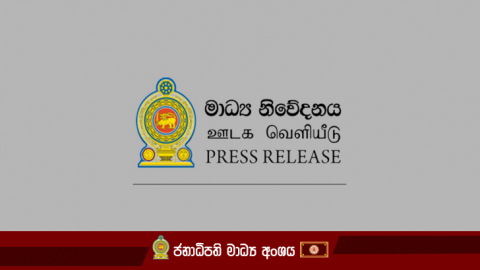
President Gotabaya Rajapaksa is to attend the 76th session of the United Nations General Assembly to be commenced on September 21 in New York.
This is the President’s first address to the United Nations General Assembly and also the first foreign conference to take part outside of the country. The President is expected to hold bilateral discussions with several Heads of State on a number of areas including economic, education and agriculture during the visit.
Foreign Minister Prof. G.L. Peiris, Principal Advisor to the President Lalith Weeratunga and Foreign Secretary Admiral Prof. Jayanath Colombage will accompany the President during the visit.
The President has decided to undertake the visit with a least number of delegates in line with his principle and after taking into consideration the current situation in the country.
Accordingly, this will be the smallest Sri Lankan delegation to attend the United Nations General Assembly in recent history. Mrs. Ioma Rajapaksa will join the visit at her own expense.
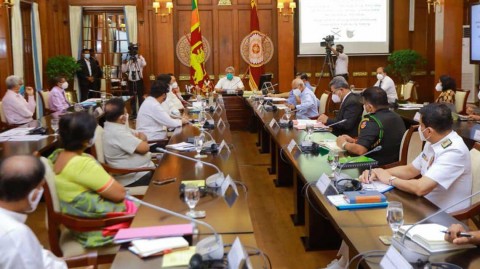
- President commends all stakeholders for making the vaccination drive a success…
- Pfizer vaccine to schoolchildren once medical approval is granted…
It has been decided to extend the current quarantine curfew until 4 am on September 13th.
The decision was taken at the meeting of the Special Committee on COVID-19 Control held through online technology under the chair of President Gotabaya Rajapaksa this morning (3). Provincial and divisional health directors joined the meeting and submitted facts and details on the measures taken to contain COVID-19 virus.
The progress of the vaccination drive and future actions were discussed at length. Special attention was paid to the need to complete the vaccination of those belonging to the age group of 20-29 in the next two weeks.
The President commended all stakeholders, including health and security sectors, for their support in making the vaccination drive carried out covering all the districts for the people over the age of 30 a success.
The President said that the Pfizer vaccine could be given to the schoolchildren of the relevant age groups as soon as the medical approval is received.
The vaccination is being carried out at 400-450 centres daily. The number of vaccines given to each centre will be determined on the recommendations of the health sector. However, the provincial health directors said that the attempt made by the media to generalise the entire process of being irregular by highlighting an incident that took place at one or two centres, was regrettable.
The President pointed out the need to move forward the country’s economy by adapting to the new normalization system with the success achieved by the vaccination drive.
The country’s economy showed a negative impact due to the closure of the country for more than three months in 2020. The President further said that we should understand the reality as a country with a small economy, and all parties must take responsible decisions to move forward while protecting the economy.
Minister of Finance Basil Rajapaksa said that the continuous functioning of the factories in the export sector is a great relief for the economy of the country and this was done due to the success of the vaccination programme which was implemented amidst the quarantine curfew.
Many countries in the world are re-opening to the tourism sector. The President pointed out the potential the industry has to achieve successful results by correct decision making. The President also instructed the Heads of Health Sector to expedite the process of issuance of health guidelines for the promotion of tourism operations in line with the Covid eradication programme.
Prime Minister Mahinda Rajapaksa, Ministers Basil Rajapaksa, Keheliya Rambukwella, Dullas Alahapperuma, Pavithra Wanniarachchi, Johnston Fernando, Rohitha Abeygunawardena, Ramesh Pathirana, Namal Rajapaksa, Prasanna Ranatunga, State Ministers Sudarshini Fernandopulle, Sisira Jayakody, Channa Jayasumana, MP Madhura Withanage, Principal Advisor to the President Lalith Weeratunga, Health Secretary Major General (Dr) Sanjeewa Munasinghe, Director General of Health Services Dr. Asela Gunawardena, the Commanders of the three Armed Forces, the Inspector General of Police and the members of the Special Committee on COVID-19 Control and the Provincial Directors of Health Services were also present.

- No room for risk of famine or food shortage due to organic fertilizer policy…
- QR Code for all imported and locally manufactured organic fertilizer…
- The farmer will not be isolated…
Government Officials say…
The mechanism has been formulated to provide organic fertilizer required for the Maha Season to the farmers without any shortage, the Government Officials of line institutions said.Accordingly, they said the entire process including farmer awareness, technical assistance and financial assistance is being continued uninterrupted.
This was revealed at the media briefing held at the Presidential Media Centre today (02) through the Webex Application.
The weekly media briefing of the Presidential Media Centre was held via Webex App due to the COVID-19 pandemic and today’s topic was ‘The Use of Organic Fertilizer and Regulation.’
The key government officials in the field and the representatives of all electronic and print media institutions joined the briefing.
Though the government has taken steps to manufacture local organic fertilizer, achieving the goal to manufacture the fertilizer quantity required for the farmers was hampered due to the current situation. Accordingly, it was revealed that arrangements have been made to import organic fertilizer of high international standard to address any shortage and also use bio-pesticides that are covered by the Pesticides Act.
The full approval of the Fertilizer Advisory Committee has been granted for this. The officials also ensured that these organic fertilizers will be made available to the farmers after subjecting to laboratory and biodiversity research and testing.
Financial incentives of Rs. 12,500 per hectare up to a maximum of two hectares will be provided to farmers to encourage organic fertilizer production. Applications have already been issued for this and the officials said the completed application forms can be submitted to the Agricultural Research and Production Assistants or the Agrarian Service Centers.
The money will be credited to the personal account of the relevant farmers and plans have been made to provide financial assistance to the farmers who do not have bank accounts, under a special scheme. It was also stated that farmers who do not have the facilities to produce organic fertilizer have the opportunity to obtain organic fertilizer from other parties and the money will be reimbursed to them.
It was also revealed that a QR code will be issued for all imported and locally produced organic fertilizers in the future and through this facility anyone can check the quality of the organic fertilizer.
The ‘1920’ hotline provides solutions to farmers’ problems and a team of technical officers covering all districts have been prepared for field inspections.
Responding to the questions raised by the journalists on the challenges faced by the tea industry with the use of organic fertilizers, the officials said that the Tea Research Institute already examines the imported fertilizer samples and will recommend the most suitable organic fertilizer for the tea industry in the future.
Responding to the questions, the public officials pointed out that a total cost of Rs. 26.62 billion will be spent for the entire process including the required fertilizers for the Maha Season, local production, imports, subsidies, technical assistance and awareness.
They also said that with this initiative, a considerable amount out of the Rs. 22.71 billion spent on the importation of chemical fertilizers will remain with the farmers in our country.
With the use of organic fertilizer, the country has developed a young entrepreneurship. The state banks are already in the process of granting them loans up to one million rupees at a concessionary interest rate, while low income earners will be provided with necessary machinery at a concessionary price, officials pointed out.
The Government officials assured that the farmers would never be isolated at any cost and further stressed that there would be no food shortage or famine risk in the country as a result of the organic fertilizer policy, as claimed by some media and various groups.
Dr. Ajantha de Silva, Director General of the Department of Agriculture, Commissioner General of Agrarian Services Department H.M.L. Abeyratne, Additional Secretary to the State Ministry of Agriculture Mahesh Lasantha Gammanpila, Dr. J.B. Hemantha Wijewardena, Consultant – Organic Fertilizer at the Ministry of Agriculture and Dr. M.S. Nijamudeen Additional Director, Sustainable Agriculture Research and Development Center joined the media conference through the Webex Application.
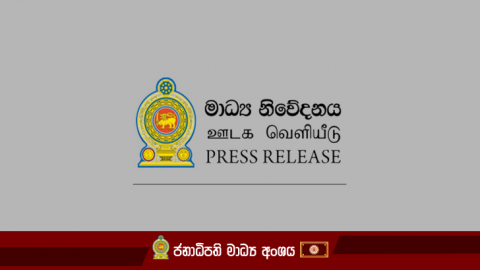
The Commissioner General of Essential Services, Major General N.D.S.P. Niwunhella said that 29,900 metric tons of hoarded sugar found in warehouses was confiscated by the government following the investigations and operations carried out today (01).
The consignment of sugar is planned to be sold to the public through state and private traders’ outlets at a controlled price.
The import duty of Rs. 50 per kilo of sugar was reduced to 25 cents per kilo from October 14, 2020 to provide relief to the consumers. The volume of sugar stored in the country at that time was 88,878 metric tons.
According to the Consumer Affairs Authority, 584,000 metric tons of sugar was imported between October 14, 2020 and June 30, 2021. The monthly demand for sugar in the country is around 35,000 metric tons.
However, data from the Consumer Affairs Authority reveals that sugar imports have exceeded the annual sugar requirement. An attempt has been made in the recent past to create an artificial shortage of sugar in the country and to sell sugar at a very high price, causing great inconvenience to the consumer.
As per the powers vested in terms of the section 2 of the Public Security Ordinance, President Gotabaya Rajapaksa declared emergency regulations formulated as per the section 5 on essential food supply, with effect from the midnight of 30th August, 2021, by enforcing directives under the section ii of the Ordinance.
Accordingly, the President took measures to appoint a Commissioner General of Essential Services and gave him the authority to coordinate the supply of paddy, rice, sugar and other consumer goods that are essential to maintain the livelihood of the people.
The Commissioner General of Essential Services said steps were taken to confiscate the hoarded sugar stocks by conducting raids in order to safeguard the interests of consumers and then release these stocks to the market under a fixed price.
(The details of the seized sugar stocks on 01-09-2021 are as follows)
| Company | Address | Amount in MT |
| Pyramid Wilmar Company | Muthurajawela | 6,200 |
| Global Trading Company | 809/5, Negombo Road, Mabola, Wattala | 4,800 |
| Global Trading Company | 242, Uswetakeiyawa, Wattala | 4,100 |
| Wilson Trading Company | (Warehouses 04) | 14,000 |
| R.G. Stores | Hunupitiya Road, Kiribathgoda | 800 |
| 29,900 | ||
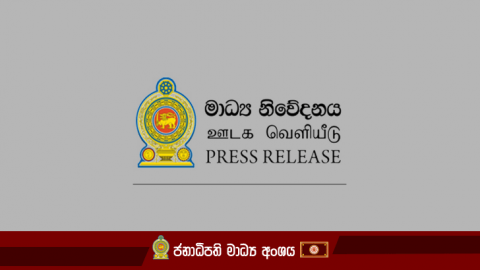
As per the powers vested in terms of the section 2 of the Public Security Ordinance, President Gotabaya Rajapaksa declared emergency regulations formulated as per the section 5 on essential food supply, with effect from midnight today, by enforcing directives under the section ii of the Ordinance.
The authorized officers will be able to take steps to provide essential food items at concessionary rate to the public by purchasing stocks of essential food items including paddy, rice and sugar, at government guaranteed prices or based on the Customs value on imported goods to prevent market irregularities which are causing inconvenience to consumers due to concealing of stocks of essential food items including paddy, rice and sugar and to prevent selling them at higher prices. This will be implemented in such a way that the loans granted to purchase stocks from the State Banks could be recovered from the borrowers.
Major General M. D. S. P. Niwunhella has been appointed as the Commissioner General of Essential Services to coordinate the supply of paddy, rice, sugar and other consumer goods that are essential to maintain the livelihood of the people.


